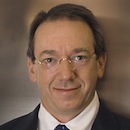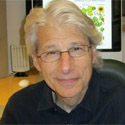Academic Editors
The following people constitute the Editorial Board of Academic Editors for PeerJ. These active academics are the Editors who seek peer reviewers, evaluate their responses, and make editorial decisions on each submission to the journal. Learn more about becoming an Editor.

Thomas Rosenau
Dr. Thomas Rosenau received his doctorate from Dresden University of Technology, Germany, and North Carolina State University, Raleigh, USA, and his habilitation in organic chemistry from BOKU University Vienna, Austria. He is currently professor at BOKU University, holding the Chair of Wood, Pulp and Fiber Chemistry and heading the Division of Chemistry of Renewable Resources. He is also adjunct professor of fiber science at Shinshu University, Japan and adjunct professor at the Johan Gadolin Process Chemistry Center at Abo Akademi Turku, Finland.
Until 2017, Dr. Rosenau has published more than 320 scientific articles, several book chapters, and 14 patents. His research interests are in chemistry of renewable resources, green chemistry and biorefineries, with a focus on cellulose and lignin analysis, chemistry and utilization.

Mirjam Knörnschild
I am a Senior Scientist leading the Behavioral Ecology and Bioacoustics Lab at the Museum of Natural History in Berlin, Germany, and a Research Associate of the Smithsonian Tropical Research Institute in Panama. I hold extensive scientific expertise in acoustic communication, cognition, learning and social behavior of mammals, particularly bats. My research projects are highly interdisciplinary, incorporating behavioral ecology, genetics, neuroethology and biolinguistics. Most of my field work is conducted in the Neotropics and South Africa.

Vivek Anantharaman
Computational biology Scientist. Research interest includes studying protein structure, function and sequence, evolution of domains and biological systems to glean information about the biology of organisms.

Alexandre H Kihara
Alexandre H. Kihara is a Tenured Neuroscience Professor at Universidade Federal do ABC (UFABC). Dr. Kihara is one of the leader scientists in the growing field of electrical synapse plasticity. He is currently editor of scientific periodicals, including PLOS ONE and Scientific Reports. His studies led to pioneer reports on changes of electrical synapses in the visual system triggered by ambient light conditions. His research extends to multiple aspects related to cell communication mediated by connexins (Cx) and pannexins (Panx) and their functional roles in the development, plasticity, and degeneration of the nervous system. In his lab, data from brand new technologies such as recording and stimulation using high-density 4096 channels multielectrode arrays (HD MEA) are combined with tissue and cell culturing, calcium-activity imaging, molecular and cellular techniques, and specific methods developed to study neuronal and glial cell activity synchronization mediated by electrical synapses. In addition, he also has solid publication record and collaborations on miRNA, cell cycle control, stem cell biology, and apoptotic signaling.

Branca M Silva
Branca M. Silva graduated in Food Engineering from the Escola Superior de Biotecnologia, Universidade Católica Portuguesa (Porto, Portugal), since 1997. She also received a Masters degree in Quality Control (Scientific Area Water and Foods) and a Ph.D. in Nutrition and Food Chemistry both from the Faculdade de Farmácia,Universidade do Porto (Porto, Portugal), in 2000 and 2005, respectively.
Currently, she is an Associate Professor (with Habilitation) at the Faculdade de Ciências da Saúde, Universidade da Beira Interior (Covilhã, Portugal).
She is (co)author of about 100 scientific papers and book chapters, has about 4000 citations and an h-index of 35.
Her research interests are oriented towards the Medicinal and Food Phytochemistry, and Nutrition areas.
She is an Editorial Board Member and reviewer of several international journals and co-editor of 2 books. She has also been invited speaker and part of the Organizing Committee Boards of several international conferences.

Ming Hu
Dr. Hu is currently an Assistant Staff in the Department of Quantitative Health Sciences, Lerner Research Institute at Cleveland Clinic. He is also an Assistant Professor (non-tenure track) in the Department of Medicine at Cleveland Clinic Lerner College of Medicine of Case Western Reserve University, an Associate Member of Molecular Oncology Program at Case Comprehensive Cancer Center, and a joint faculty member of Institute for Computational Biology at Case Western Reserve University School of Medicine. Dr. Hu received his B.S. degree in Statistics from University of Science and Technology of China in 2006 and Ph.D. degree in Biostatistics from University of Michigan in 2010. He was a postdoctoral fellow in Dr. Jun S. Liu’s group in Department of Statistics at Harvard University from 2010 to 2013. He jointed the Department of Population Health, Division of Biostatistics at New York University School of Medicine in 2013. In 2016, he moved to his current position in Cleveland Clinic. Dr. Hu has more than 10 years of experience in statistical modeling and statistical computing with applications in statistical genetics and genomics. Recently, his research is focused on genome-wide mapping and analysis of chromosome spatial organization. Dr. Hu has published more than 60 peer-reviewed research papers covering statistics, bioinformatics, statistical genetics and computational biology.

Maria J Santos
Assistant Professor in Environmental Sciences, Utrecht University.
My research combines field methods, GIS, remote sensing, statistical modeling, historical archival research, and conservation biology, history, and planning. I focus on four research areas:
* Assessing interaction and feedback mechanisms of social-ecological systems in space and time
* Identifying global change drivers through conservation histories and relate them to changes and fluxes in species and ecosystems, land use policy, and environmental governance
* Investigating how land use and climate changes affect spatial and temporal dynamics of species and habitat at multiple scales
* Use of state of the art remote sensing, GIS and quantitative analysis to answer interdisciplinary research questions

Edward R C Hornibrook
Edward Hornibrook is a Professor at The University of British Columbia, Okanagan Campus and the current Head of the Department of Earth, Environmental and Geographic Sciences. He is a biogeochemist specializing in stable isotopes with research interests in land-water-atmosphere exchange of trace gases. He employs a range of techniques, including gas and ion chromatography, laser spectroscopy and stable isotope ratio mass spectrometry, to study gases that have the potential to alter Earth’s climate, in particular, methane and carbon dioxide. Key topics are how such gases are produced and consumed in natural and anthropogenic environments, and the rates and mechanisms by which they are exchanged with the atmosphere.

Diane P Hanger
Professor of Neuroscience at King's College London, Institute of Psychiatry, Psychology & Neuroscience.

Magdalena Zernicka-Goetz
Magdalena Zernicka-Goetz is Scientific Head of Mammalian Development and Stem Cells Group, University of Cambridge, Professor of Mammalian Development and
Stem Cell Biology, Department of Physiology, Development &
Neuroscience, University of Cambridge and Wellcome Trust Senior Research Fellow.

James J. Mulé
- Executive Vice President and Associate Center Director for Translational Research
- Michael McGillicuddy Endowed Chair for Melanoma Research and Treatment
- Co-Director of the Donald A. Adam Comprehensive Melanoma Research Center at the Moffitt Cancer Center.
Dr. Mulé is recognized for his research and clinical contributions to cancer immunotherapy, particularly in solid tumors. He has published nearly 200 articles in the areas of cancer vaccines and cancer immunotherapy; and he has been an NCI-NIH investigator continuously for nearly 20 years.
Dr. Mulé serves on the advisory board of M2Gen, a wholly-owned subsidiary of the Moffitt Cancer Center in the area of personalized medicine in oncology, which he helped to establish; the Board of Directors of Medicine in Need, Cambridge, MA (a non-profit spin-out of Harvard University, and selected as a 2011 Technology Pioneer by the World Economic Forum); and the advisory boards of several NCI-designated Cancer Centers and was a member of the NCI Director’s Board of Scientific Counselors (BSC-A, clinical), remaining a long-standing special government employee to the FDA and the NCI; the scientific/medical advisory boards of several private and public companies where he also served as a consultant; and he chaired the FDA’s CBER Cellular, Tissue, and Gene Therapy Advisory Committee.

Robert B. Goldberg
Distinguished Professor of Molecular, Cell, & Developmental Biology, UCLA; Member of the National Academy of Science (USA); Fellow of the American Society of Plant Biologists (ASPB); Fellow of the American Association For the Advancement of Science (AAAS).

